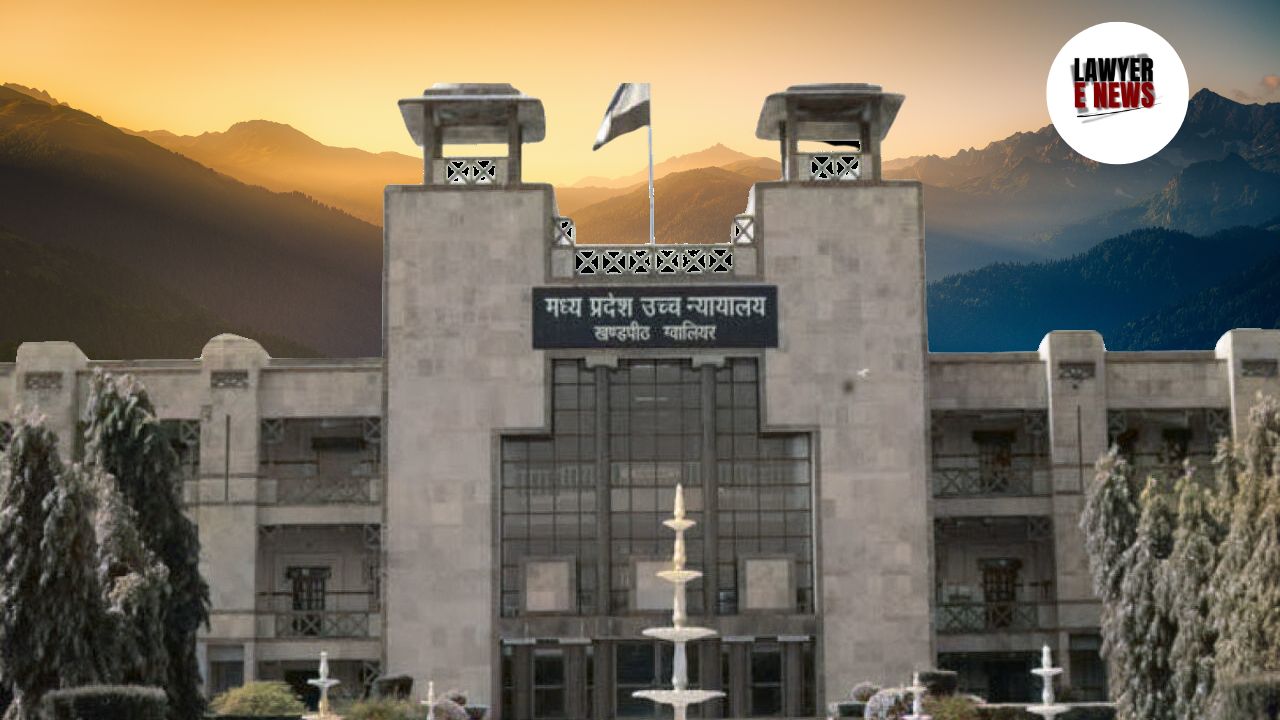-
by sayum
14 February 2026 2:22 PM



Madhya Pradesh High Court quashed disciplinary proceedings initiated against Kailash Bundela, an Additional Collector, ruling that he was entitled to judicial immunity under the Judges (Protection) Act, 1985. The court found that Bundela’s quasi-judicial actions under the Madhya Pradesh Land Revenue Code were free from malfeasance, rejecting the State's challenge to his administrative decisions and finding the disciplinary process unjustified.
Kailash Bundela, while serving as Additional Collector, faced a chargesheet alleging procedural lapses in granting land transfer permissions under Sections 165(6) and 165(7) of the Madhya Pradesh Land Revenue Code, 1959. The charges, totaling thirteen, accused him of overstepping his authority and causing losses to the government by bypassing proper procedure. The chargesheet was issued in April 2019, and an internal investigation began. Despite Bundela’s responses and multiple representations, the inquiry remained pending, impeding his promotion to the IAS cadre.
Bundela argued that his actions were within the bounds of his quasi-judicial authority, protected by the Judges (Protection) Act, 1985, and a circular from the Madhya Pradesh government. He contended that both the Economic Offences Wing (EOW) and the Lokayukta had cleared him of any wrongdoing, asserting that the pending inquiry was a tactic to deny him promotion.
The court examined three primary legal questions: whether Bundela, as an Additional Collector, had the authority to grant land permissions, whether he was entitled to immunity under the Judges (Protection) Act, and if the disciplinary proceedings were legally valid.
The court noted that Section 17 of the Madhya Pradesh Land Revenue Code permits an Additional Collector to exercise powers assigned to a Collector through a distribution of duties. Referring to similar cases, the court upheld that “the Additional Collector has every competence to perform the duties as assigned,” thus affirming Bundela’s authority to grant permissions under the Code.
The court analyzed Bundela’s eligibility for protection under the Judges (Protection) Act. Section 2 of the Act defines a judge to include individuals acting in a judicial or quasi-judicial capacity. The Madhya Pradesh government’s 2021 circular further clarified that revenue officers acting in judicial capacities are covered by this immunity. “The petitioner’s acts were in the course of his quasi-judicial functions,” the court observed, ruling that this immunity protected Bundela from disciplinary actions based solely on his administrative decisions.
Justice Dwivedi ruled that the disciplinary proceedings were “malicious” and “arbitrary,” aimed at preventing Bundela’s promotion. Despite the EOW’s conclusion that Bundela’s actions involved no personal gain or harm to the state, the proceedings continued without any evidence of intentional wrongdoing. “Such a prolonged inquiry without substantial grounds only serves to tarnish the petitioner’s career prospects unjustly,” the court stated, finding the disciplinary action “contrary to law.”
Quashing of Chargesheet and Proceedings: The court nullified the chargesheet and dismissed the disciplinary inquiry, emphasizing that Bundela’s administrative decisions did not constitute misconduct. “There was no oblique motive, personal gain, or loss to the government exchequer,” the court ruled.
Judicial Immunity for Revenue Officers: The court upheld Bundela’s status as a judicial officer under the Judges (Protection) Act, noting that he operated within his legal capacity under the Code of 1959. It affirmed that quasi-judicial actions by revenue officers are immune from punitive proceedings unless clear misconduct is shown.
Directive for Promotion Consideration: Given the unjustified inquiry’s impact on Bundela’s career, the court directed the State to consider him for promotion to the IAS cadre, if otherwise eligible.
In quashing the proceedings, the Madhya Pradesh High Court reinforced the protective scope of the Judges (Protection) Act for quasi-judicial officers. The court’s decision underscores that actions performed in a judicial or quasi-judicial role, when devoid of malice or impropriety, should not be grounds for disciplinary measures.
Date of Decision: November 11, 2024
